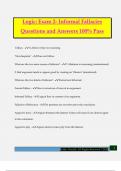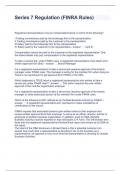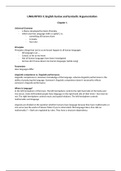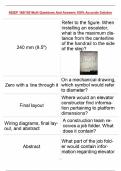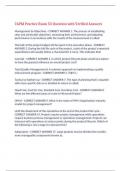Exam (elaborations)
LOMA 311 MODULE 1 EXAM QUESTIONS AND ANSWERS RATED 100% CORRECT
- Course
- Institution
LOMA 311 MODULE 1 EXAM QUESTIONS AND ANSWERS RATED 100% CORRECT which of the following is not an example of an intentional tort?- slander- libel- contributory negligence- fraudulent misrepresentation - Answer-- contributory negligence Lisa keynes trespassed onto a construction site despite see...
[Show more]




